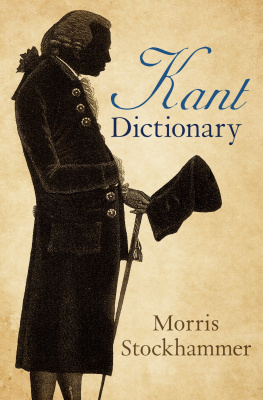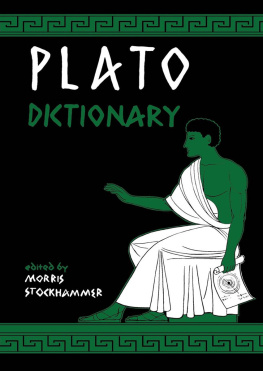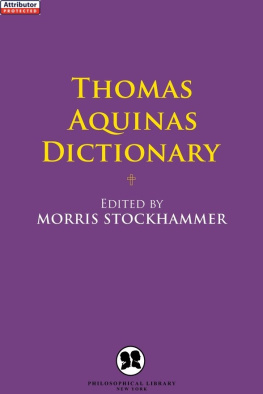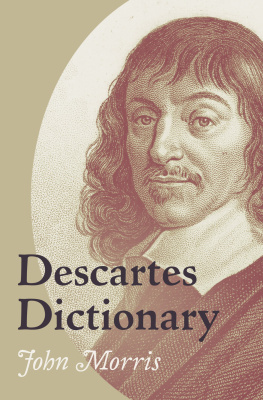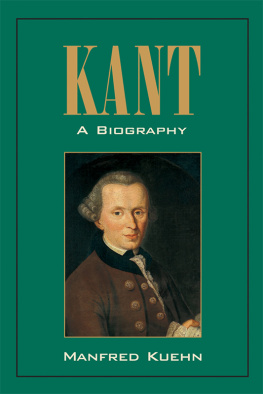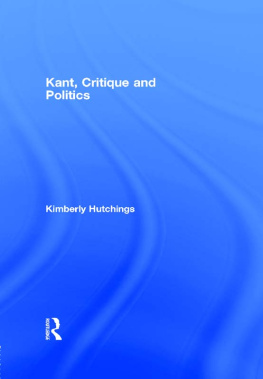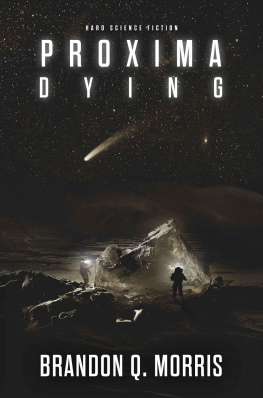Morris Stockhammer - Kant Dictionary
Here you can read online Morris Stockhammer - Kant Dictionary full text of the book (entire story) in english for free. Download pdf and epub, get meaning, cover and reviews about this ebook. year: 2022, publisher: OpenRoad, genre: Science. Description of the work, (preface) as well as reviews are available. Best literature library LitArk.com created for fans of good reading and offers a wide selection of genres:
Romance novel
Science fiction
Adventure
Detective
Science
History
Home and family
Prose
Art
Politics
Computer
Non-fiction
Religion
Business
Children
Humor
Choose a favorite category and find really read worthwhile books. Enjoy immersion in the world of imagination, feel the emotions of the characters or learn something new for yourself, make an fascinating discovery.
- Book:Kant Dictionary
- Author:
- Publisher:OpenRoad
- Genre:
- Year:2022
- Rating:3 / 5
- Favourites:Add to favourites
- Your mark:
- 60
- 1
- 2
- 3
- 4
- 5
Kant Dictionary: summary, description and annotation
We offer to read an annotation, description, summary or preface (depends on what the author of the book "Kant Dictionary" wrote himself). If you haven't found the necessary information about the book — write in the comments, we will try to find it.
Kant Dictionary — read online for free the complete book (whole text) full work
Below is the text of the book, divided by pages. System saving the place of the last page read, allows you to conveniently read the book "Kant Dictionary" online for free, without having to search again every time where you left off. Put a bookmark, and you can go to the page where you finished reading at any time.
Font size:
Interval:
Bookmark:



MORRIS STOCKHAMMER
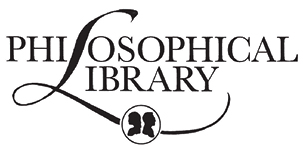

Thou, whose exterior semblance dost belie
Thy souls immensity;
Thou best philosopher
William Wordsworth
God created the world for the pursuit of knowledge.
Kant
Immanuel Kant (1724-1804), a philosophers philosopher, was born in the Prussian town of Koenigsberg. As Bauer describes it, his life was outwardly uneventful. His days proceeded with the precision of a clockwork, and he seldom left the city in which he lived, and never left his country. But from the long journeys which he undertook into the spiritual and boundless realm of human thinking, he brought back something imperishable: his philosophical works, which are among the great books of philosophy. To use Kants standard coinage, his life was a life in or for itself: lacking an outward-empirical history, but unfolding an inner-intelligible progress. For his punctual life only mirrored the equally precise structure of his works.
The inward Kant shared the modest view of Socrates: How many things there are which I dont need! But he possessed that sublime humor which muses: To be enamored of the metaphysics is my fate, although I can hardly boast of favors received from her.
According to Kant, phenomena are not things-in-themselves, and vice versa. Phenomena obviously denote natural phenomena. For instance, a house is not a thing by itself, but a phenomenon only (CPuR). But what is a thing-in-itself? Upon the right answer to this question depends the correct interpretation of Kants philosophical intentions.
Kants differentiation between phenomena and things-in-themselves revolves around the dichotomy between the is and the ought. While phenomena or appearances signify amoral laws of nature and facts, things-in-themselves, or noumena , refer to spiritual laws (imperatives, commands) and to normative ideas. These moral values are in-themselves or original (self-determined, self-existent, unconditioned, cause-free, autonomous), i. e., inextricable from value-neuter facts.
Now, Kants philosophic terminology can be translated into conversational parlance. Kants fundamental thesis that noumena (things-in-themselves) are at the bottom of phenomena (appearances), means: ethical thoughts (intentions) motivate human actions. A simple truism made famous by an unusual diction. A disguising garment in which the true person can almost not be recognized.
Kant culminates a venerable philosophical tradition that was initiated by Plato and continued by Descartes, namely, the dualism between appearance (res extensa) and idea (res cogitans). In modern terminology we would call this the dualism between the physical or value-free event and the spiritual value. The thing-in-itself is essentially a value-ideafor instance, the command to respect ones parents, or the imperative to love ones neighbor.
Kants assumption of spiritual or moral values, in contradistinction to the materialistic denial of them, is the leitmotif of his transcendental philosophy. Spiritual values transcend amoral natural phenomena, cannot be deduced or derived from them. It is reprehensible to derive or limit the laws of what we ought to do according to our experience of what has been done (CPuR). Suffice it to say that the ethical concepts of value-ideas cannot be observed, but only comprehended. This restriction is, however, no obstacle for the abstract thinker.
Kants opinion that spiritual values are unknowable, is only a casual view; according to his final word, they can be conceived in our conceptual (inner) experience though not perceived in our sensory (outer) experience. Things-in-themselves are, therefore, not inscrutable; they can be understood. Kants agnosticism is only transitory; he emphatically advocates an optimistic epistemology.
Now arises the question of whether those two realms of phenomena and things-in-themselves can be reconciled with one another. Kants chief contribution to Western philosophy lies in the refutation of the suspected contradiction between spiritual and natural laws: This is the only thing which we had to do in order to remove this apparent antinomy (CPuR). Kants solution of his Third Antinomy proves that no logical conflict exists between moral ideas (or grounds) and amoral facts (or causes): What is shown by this is simply this, that all things in nature and all their empirical conditions (causes) may well coexist with the presupposition of a (moral idea and of a) purely intelligible condition (moral ground), and that there is no real contradiction between these two views (CPuR). Dualism is not inconsistent: To conceive an intelligible (moral) ground, and to conceive it as freed from the (unfree causes), does not run counter to the unlimited empirical regressus (CPuR). Freedom is not self-contradictory if attributed to grounds, and not to causes.
Kants dualism, which takes an object in two senses (CPuR), manifests itself especially in the concept of will, that is, in the conception of two wills: the will of the law and the will of man. According to Kants double aspect of things-in-themselves and appearances, there is also a will-in-itself (will of the law) and an appearance-will (will of man). While the latter will is causally determined, the former is causally free. Two different subjects must have different predicates. Freedom is possible if attributed to the will of the law, and not to the will of man. The novel dualism of two kinds of will is the key to freedom. (See entry on Free Will ) We can, without any contradiction, think the will, when phenomenal (human), as necessarily conforming to the law of nature, and so far, not free, and yet, on the other hand, when belonging to a thing by itself (to the normative law) as not subject to that law of nature, and therefore free (CPuR). Generally speaking, matter (nature, causality) is unfree, but mind (reason, imputation) is free.
Reason and its freedom are strangers to the natural science; but they are as little abstruse to the spiritual science (ethics) as numbers to mathematics.
Successfully resolving the alleged self-contradiction of freedom, Kant did not entirely evade other inconsistencies. One would be doing Kant a disservice if one would close his eyes to some of the irreconcilable statements in his philosophical system. Kant, for instance, at the same time maintains that value-ideas exist and do not exist, that they are at once recognizable and unfathomable. One of both positions must be abandoned. Indeed, the prevalently confident Kant overcomes the occasionally skeptical double: spiritual values ultimately exist as well as physical phenomena, and can be comprehended as well as the latter. It would be unfair to consider the ephemeral as the eternal Kant. For he is an out-spoken dualist (antinomist): both the moral ideas and the amoral facts are not nonexisting or nonunderstandable. Kantianism is Twoism. Vide Dualistic Philosophy.
There is still a handicap to the penetration of Kants thoughts. For he often expresses his spiritualistic argument in a naturalistic terminology, designating the moral ground as an intelligible cause, and the imputation (moral legislation) as an intelligible causality. This misleading style, however, can be surmounted. The rediscovered Kant, then, is destined for a lasting-revival.
Next pageFont size:
Interval:
Bookmark:
Similar books «Kant Dictionary»
Look at similar books to Kant Dictionary. We have selected literature similar in name and meaning in the hope of providing readers with more options to find new, interesting, not yet read works.
Discussion, reviews of the book Kant Dictionary and just readers' own opinions. Leave your comments, write what you think about the work, its meaning or the main characters. Specify what exactly you liked and what you didn't like, and why you think so.

